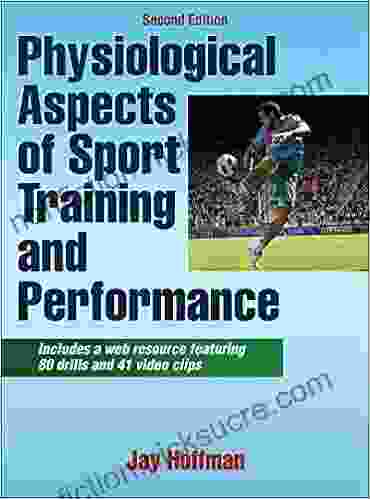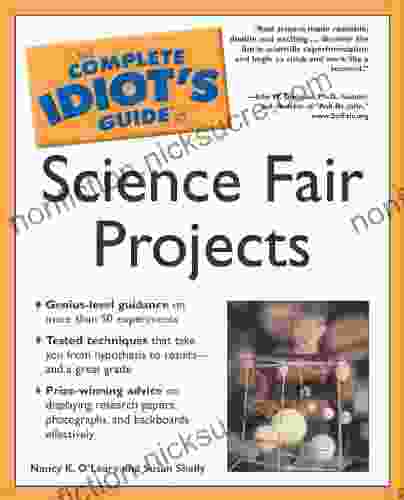Sport training is a complex process that requires a number of physiological adaptations in order to improve performance. These adaptations include changes in energy systems, hormonal responses, and muscle function. In this article, we will discuss the key physiological aspects of sport training and performance, and how they can be optimized for improved results.
4.7 out of 5
| Language | : | English |
| Text-to-Speech | : | Enabled |
| Word Wise | : | Enabled |
| Lending | : | Enabled |
| File size | : | 79366 KB |
| Screen Reader | : | Supported |
| Print length | : | 505 pages |
Energy Systems
The energy systems are responsible for providing the body with the fuel it needs to perform exercise. There are three main energy systems: the ATP-PC system, the glycolytic system, and the oxidative system.
- The ATP-PC system is the fastest energy system, but it is also the most limited. It can only provide energy for a few seconds of high-intensity exercise.
- The glycolytic system is the next fastest energy system. It can provide energy for up to several minutes of high-intensity exercise, but it produces lactic acid as a byproduct.
- The oxidative system is the slowest energy system, but it can provide energy for prolonged periods of low-intensity exercise. It does not produce lactic acid as a byproduct.
The type of energy system that is used during exercise depends on the intensity and duration of the activity. For high-intensity activities, the ATP-PC system and glycolytic system are used. For low-intensity activities, the oxidative system is used.
Hormonal Responses
Exercise triggers a number of hormonal responses that help to prepare the body for activity. These responses include the release of adrenaline, cortisol, and growth hormone.
- Adrenaline is a hormone that increases heart rate, blood pressure, and blood glucose levels. It also helps to dilate the airways and increase oxygen uptake.
- Cortisol is a hormone that helps to release energy from the body's stores. It also helps to reduce inflammation and suppress the immune system.
- Growth hormone is a hormone that helps to build muscle and repair tissue. It is also released during sleep.
These hormonal responses help to optimize the body's performance during exercise. They increase energy levels, reduce fatigue, and promote recovery.
Adaptations To Training
Regular exercise leads to a number of adaptations in the body that improve performance. These adaptations include:
- Increased muscle mass and strength
- Improved cardiovascular fitness
- Increased flexibility
- Improved coordination and balance
- Reduced body fat
These adaptations are the result of a number of physiological changes that occur in the body in response to exercise. For example, muscle mass and strength increase as a result of muscle fiber hypertrophy and hyperplasia. Cardiovascular fitness improves as a result of increased heart size and stroke volume. Flexibility improves as a result of increased range of motion in the joints. Coordination and balance improve as a result of increased proprioception and motor control. Body fat reduces as a result of increased calorie expenditure and decreased fat storage.
The adaptations to training are progressive. They occur gradually over time with regular exercise. The rate of adaptation depends on a number of factors, including the individual's training status, age, and genetics.
Nutrition And Recovery
Nutrition and recovery are essential for optimal sport performance. A healthy diet provides the body with the nutrients it needs to fuel exercise and repair tissue. Recovery allows the body to rest and rebuild after exercise.
- Carbohydrates are the main source of energy for the body. They should be consumed in large amounts before and during exercise.
- Protein is essential for building and repairing muscle tissue. It should be consumed in moderate amounts throughout the day.
- Fat is a source of energy and can help to improve recovery. It should be consumed in small amounts throughout the day.
- Vitamins and minerals are essential for overall health and performance. They should be consumed in a variety of foods from all food groups.
Recovery is just as important as training for optimal performance. Recovery allows the body to rest and rebuild after exercise. During recovery, the body repairs muscle tissue, replenishes energy stores, and reduces inflammation.
There are a number of things that can be done to promote recovery, including:
- Getting enough sleep
- Eating a healthy diet
- Drinking plenty of fluids
- Stretching and massage
- Active recovery
By following these tips, you can optimize your sport training and performance. With hard work and dedication, you can achieve your fitness goals.
The physiological aspects of sport training and performance are complex and multifaceted. However, by understanding the key concepts, you can optimize your training and performance. With hard work and dedication, you can achieve your fitness goals.


























































































































































































































































































































































































































































































































































































